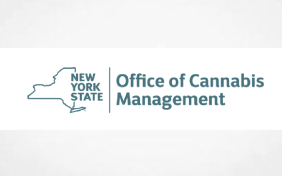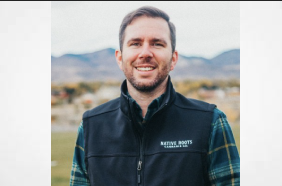Darren Kaplan and Garrett Graff Attorneys at Hoban Law Group
With the recent passage of the Agriculture Improvement Act of 2018 — the 2018 Farm Bill — these are exciting times for many in the cannabis industry.
The 2018 Farm Bill is big news because this legislation was the product of concerted bipartisan effort in the nation’s capital, recognizing and restoring hemp’s deserved status in America. It has added to the wave of momentum being felt within the industry around hemp.
The practical impact of this law is its clarification and affirmation that raw hemp – as well as cannabinoids, extracts and derivatives therefrom – is to be treated as an agricultural commodity, not a drug.
The 2018 Farm Bill means that hemp will be regulated by the U.S. Department of Agriculture (USDA), not the Drug Enforcement Agency (DEA). It allows hemp farmers access to crop insurance, grants, and certification. Moreover, the 2018 Farm Bill expressly prohibits interference in interstate commerce of hemp and hemp products.
But, before the full effects of the 2018 Farm Bill can be fully realized, steps remain to be completed both at the federal and state level.
First, now that the USDA has regulatory authority over hemp, it must create guidelines and rules for how to implement the 2018 Farm Bill’s provisions. That rulemaking process has been ongoing, even continuing through the recent government shutdown, according to USDA spokespeople. Although the USDA has publicly committed to implementing these rules and regulations as quickly as possible, there has been no such commitment to any specific deadline.
Additionally, individual states must and submit their own plans for approval to the USDA. Even though the USDA has yet to establish its hemp rules and regulations, some states have already submitted their plans. Kentucky and Pennsylvania were the first and second in line to do so. However, given that the USDA must evaluate such state plans based upon USDA’s regulations – which are not yet established – it remains to be seen how, or whether, USDA can evaluate those state plans until USDA finalizes its own regulations.
The creation of guidelines and regulations on both the federal and state levels, including the processes for approving state plans and implementing them, means there is some way to go — potentially several months or even more than a year — before the 2018 Farm Bill is truly enacted to its full effect.
Until the regulatory framework of the 2018 Farm Bill is fully implemented, hemp will remain governed under the existing 2014 Farm Bill and the rules of its corresponding state pilot programs.
Specific questions about the current state of industrial hemp laws, rules, and regulations — as well as the federal and state-level effects of the 2018 Farm Bill — should be discussed with a legal professional.
Darren Kaplan is an associate attorney at Hoban Law Group in Denver, Colorado. Darren has worked on several legal issues in the cannabis space, specializing thus far in industrial hemp, regulatory compliance (hemp and marijuana), and civil and commercial litigation. He can be reached at darren.kaplan@hoban.law.
Garrett Graff is a senior attorney at Hoban Law Group in Denver, Colorado, nationally recognized as a Cannabis Law Trailblazer by National Law Journey. Garrett specializes in representation of both the marijuana and industrial hemp industries. His practice involves corporate and M&A, real estate, regulatory/compliance, FDA/FTC compliance, intellectual property protection, and civil and commercial litigation. He can be reached at garrett@hoban.law.
This article has been prepared for informational and general guidance purposes only; it does not constitute legal or professional advice. You should not act upon the information contained herein without obtaining specific professional advice. No representation or warranty (express or implied) is made to the accuracy or completeness of the information contained in this publication. Hoban Law Group, its members, employers, and agents accept no liability, and disclaim all responsibility, for the consequences of you or anyone else acting, or refraining to act, in reliance on the information contained in this publication or for any decision based thereupon.




















